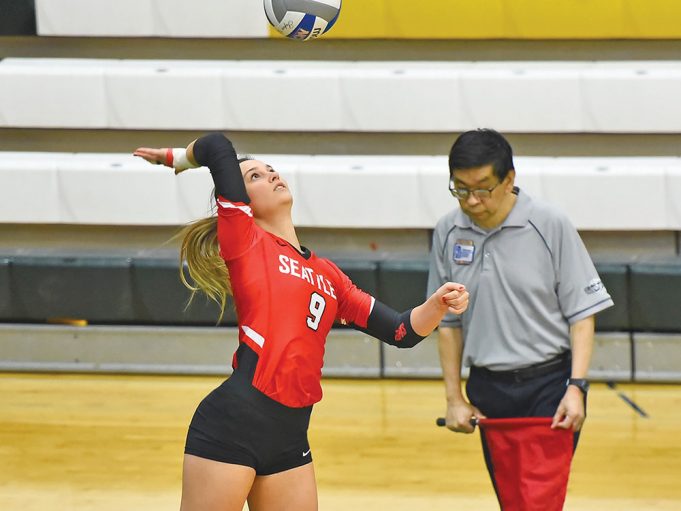One of the greatest things you can do to help improve your officiating is to gain a better understanding of the game itself, whatever sport you work. Anticipation is critical in officiating. You give yourself a much better chance of getting in proper position and making the correct ruling if you anticipate what is going to happen. That doesn’t mean anticipate the ruling; that is a major error. It means knowing what’s likely to happen and adjusting accordingly. The only way you can get better at anticipating is by becoming a student of the game.
To elevate your officiating, you must learn about offensive and defensive strategies. If you know what each team is trying to do (well beyond “scoring more points, goals or runs than the other team”), your game awareness, communication, field coverage and judgment will improve.
When officiating a game, you must recognize, understand and react to each play situation. For instance, in basketball, the defensive coverages often dictate offensive plays. Is the defense a man-to-man? If they’re using a zone, what type? In baseball, the inning, count, score and place in the batting order can help umpires anticipate situations.
Good officials obtain clues by watching the players’ movements. Depending on the position and sport you’re working, the players who provide your keys will vary. Let’s say you’re the umpire on a football crew. As the ball is snapped, you see the offensive linemen fire forward. That tells you the play is likely a run. Say a guard pulls and joins the tackle on the opposite side of the line in a double-team block. That should indicate the point of attack; a team rarely goes to the trouble of using a pulling guard to deceive the defense. Now that the point of attack is established, you can focus on the blocking in that area and determine how that contact affected the play.
The more you know about the game, the less chance you have of getting surprised. It takes more than studying the rules and mechanics. A complete official knows what’s going on from the players’, coaches’ and officials’ perspectives.
When it comes down to it, trust is a vital element in officiating. You must trust yourself and the knowledge you’ve obtained to see you through game situations. You must also trust your crewmates or partner not only to handle situations properly, but to implement proper field and court coverage.
You must develop trust with your crewmates or partner so that only fouls that merit punishment are enforced. If you make a ruling and a crewmate or partner asks, “Are you sure that’s what you saw? I had a better look and I didn’t see it,” you must trust that the official’s motives are pure. You must also set aside personal pride and yield to another official if you truly believe the crewmate or partner is correct.
Trust your crewmate to have the proper reaction
You must also trust that if you go to a crewmate or partner with the same question, he or she will have the proper reaction.
Trust also comes into play regarding coverage. In almost no instance should every official be watching the player with the ball. The non-covering officials must watch the players who are not involved in running with or dribbling the ball, tackling the runner or running the bases, especially when the play is over. Think about it: Usually there are only a couple of players around the ball. That leaves the majority of the players in other areas. If all of the officials had their eyes glued to the ball, the majority of the players would be unattended. That’s when problems occur, like rough play or trash talking. If the non-covering officials watch the players in their vicinity during and after the play, the game stays under control.
You must trust your crewmates or partner to handle things correctly when you’re the covering official and vice versa. We have a tendency to want to watch the ball even when we’re not supposed to. Maybe that stems from watching games on TV, because the cameras always focus on the ball. Maybe it comes from the belief that more exciting things happen around the ball. Whatever the reason, you must trust your crewmates or partner to handle it. If you don’t, dead-ball coverage is non-existent and the game suffers.
Officials who trust each other in handling situations and coverage responsibilities form the building blocks to successful officiating. Fight the urge to watch the ball all the time. Your game will stay under control, your judgment will improve and you will become a better official.
Effective communication rounds out the successful official. It makes sense: If you’ve got a lot of knowledge and make good decisions but can’t effectively communicate with others, no one can tell that you’ve got a lot of knowledge and make good decisions. Good communicators make good officials.
Communication goes well beyond words. It includes body language and signals. There is a great deal of emphasis on proper, clear signals throughout mechanics manuals. Why? Signals are our language. They’re our way of telling others what’s going on. Good signals show decisiveness, clearly indicate what’s going on and even help rulings become accepted.
Learn how to read keys, trust yourself and your crewmates or partner and communicate effectively. You’ll find yourself improving every time you step onto the field. out of a sense of obligation or simply to see and be seen, as some people do, you are letting yourself down.
What's Your Call? Leave a Comment:
Note: This article is archival in nature. Rules, interpretations, mechanics, philosophies and other information may or may not be correct for the current year.
This article is the copyright of ©Referee Enterprises, Inc., and may not be republished in whole or in part online, in print or in any capacity without expressed written permission from Referee. The article is made available for educational use by individuals.


















